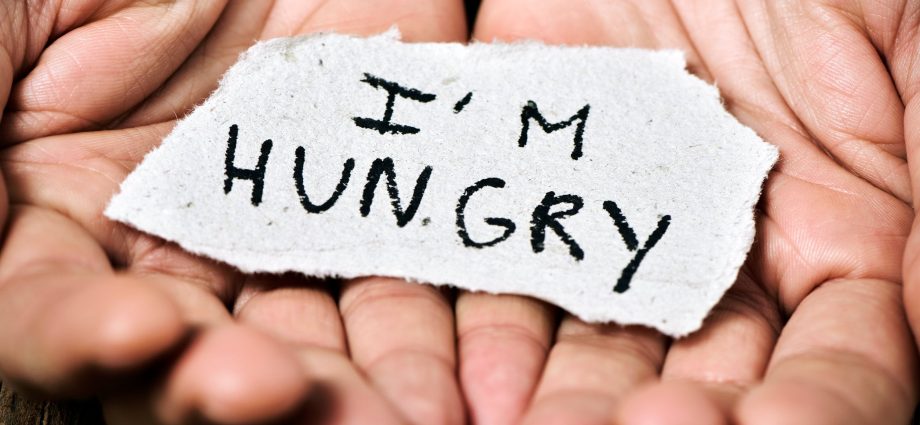By Cedric Prakash
Ahmedabad, Nov 14, 2024: On October 15, the 2024 Global Hunger Index was released ranking India 105 out of 127 countries; India has a level of hunger that is serious. A recent World Bank report stated, “almost 129 million Indians are living in extreme poverty in 2024, on less than US$2.15 (about 181 rupees) a day.”
These statistics should not surprise anyone: while India boasts of producing some of the richest persons in the world, the fact is that millions of Indians still do not have access to roti- kapda- makhan(food-clothing-shelter), clean drinking water and the other basic amenities of life.
The Universal Church observes on November 17, the VIII World Day of the Poor. The one consideration which must be uppermost in the hearts and minds of every disciple of Jesus is ‘are we responding to the cry of the poor?’
Pope Francis has based his message this year on the theme, ‘The prayer of the poor rises up to God’ (cf. Sir 21:5), saying, “The World Day of the Poor has now become a fixture for every ecclesial community. It is a pastoral opportunity not to be underestimated, for it challenges every believer to listen to the prayer of the poor, becoming aware of their presence and needs. It is an opportune occasion to implement initiatives that concretely help the poor.”
For him, the cry (their prayer) of the poor, has a message for all of us! Just as God does, we need to listen to their prayer; but God also wants us to respond to them proactively.
In January 2023, OXFAM released its report ‘Survival of the Richest’ at the World Economic Forum in Davos, The Report highlighted the large disparity in wealth distribution in India, which makes the country one of the most unequal countries in the world, grappling with soaring levels of both income and wealth inequality.
The report says, that more than 40 percent of the wealth created in India from 2012 to 2021 had gone to just 1 percent of the population, the richest 10 percent of the Indian population lay claim to an astonishing 77 percent of the nation’s wealth.
Only 3 percent of the country’s wealth had trickled down to the bottom 50 percent. In 2022, the wealth of India’s richest man Gautam Adani increased by 46 percent, while the combined wealth of India’s 100 richest had touched US$660 billion.
Christian ‘charity’ is no longer synonymous with the traditional ‘doling -out.’ We are mandated today to address the structural causes of poverty and to empower the poor through a right-based approach.
In 2009, with his path-breaking Encyclical ‘Caritas in Veritate’, Pope Benedict XVI, redefined the meaning of ‘charity’ , “Charity in truth, to which Jesus Christ bore witness by his earthly life and especially by his death and resurrection, is the principal driving force behind the authentic development of every person and of all humanity. Love — caritas — is an extraordinary force which leads people to opt for courageous and generous engagement in the field of justice and peace.”
We need to respond to the cry of the poor, in a comprehensive manner, which includes:
Awareness: to know what is happening to the poor and marginalised, the excluded and exploited, and other vulnerable sections of society; of how powerful and other vested interests manipulate the poor for their own greed. Above all, of how structures and systems, policies and legislations continue to keep people impoverished.
Attitude: often our attitude/s towards the poor is very different in comparison to our attitude towards the rich. We higgle-haggle for just Rs 2/- with a poor fisherwoman when we go to buy fish, thinking we are being cheated; will we bargain when we go to a Supermarket, knowing fully well that we are being cheated of Rs 200/- and more?
Accompany: we are called to accompany the poor and powerless in the quest for a more humane, just, dignified and equitable life. The poor constitute a significant section of society They need to be told about their legitimate rights, to access Government schemes / programmes which are meant to benefit them. To walk with them as ‘pilgrims of hope’!
Articulation: is being visible and vocal, to study and document facts: of how the Government is pro-rich with policies (like mining/ cutting down forests/use of fossil fuels) which destroy the environment and make the poor, poorer. It is prophetic courage to come out on the streets, to join civil society groups in rallies and campaigns on behalf of the poor; to write to daily newspapers / magazines and online portals on what is happening to the poor.
Advocacy means challenging anti -people legislation/ policies. For example, the three farm laws and the four labour codes are patently discriminatory and against the interests of the poorer sections of society. For this we need to collaborate and network with others, join people’s movements, use social media. Above all, not to be afraid to take a stand for the poor, the powerless and voiceless.
Pope Francis emphasises, in his message, “As we journey towards the Holy Year, I urge everyone to become pilgrims of hope, setting tangible goals for a better future. Let us not forget to keep ‘the little details of love’: stopping, drawing near, giving a little attention, a smile, a caress, a word of comfort. These gestures are not automatic; they require a daily commitment and are often hidden and silent, but strengthened by prayer. In this time, when the song of hope seems to give way to the clamour of arms, to the cry of many innocent wounded, and the silence of the countless victims of wars, we turn to God with our plea for peace.”
The poor cry out to us today: do we have the prophetic courage to respond to them in a proactive way and accompany them, in their struggle for a more just, equitable and hope-filled world?
(Jesuit Father Cedric Prakash is a human rights, reconciliation and peace activist/writer. Contact: cedricprakash@gmail.com)











The poor are to be kept within our hearts to be loved and cared for, with a preferential choice….. This has been the priority of my daily ministry…the poor catch my attention with a preference over everyone and everything else and helps me to fulfil the charism of my congregation and it’s founder Servant of God Raymond Francis Camillus Mascarenhas, your revered great grand uncle.
Feeding the hungry after speaking to the multitude was an integral part of the Ministry of JESUS. Hunger is the most terrible pain of a normal person. When India got independence, the population was 400 million and now 1.43 billion, however while watching the dietary habit of the people of Kerala where the least hunger is noted among the States of India, it is obvious that the standard of living has greatly improved and the people are consuming rich food. The Sikhs are noted for feeding the hungry, the Christians do some feeding programs. But, the minority Christians of India have to take stern stand to feed at least one hungry person a day, so that we can reduce hunger considerably all across India.